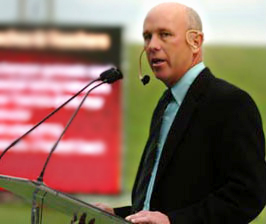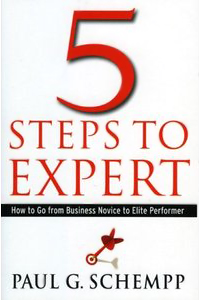It worked. Link bait positioning drew me in to a series of posts from Dan Zarrella, “The Social Media Scientist,” who uses data to punch holes in “unicorns and rainbows” myths about social media.
A trio of posts (two relatively new, another a few months old) all attempt to shoot down the idea that marketers should “engage in the conversation.” Those three are summarized nicely (here) by Justin Wise.
In looking at Facebook, Twitter and blog conversations, Zarrella observes that likes, @replies and comments are insignificantly or negatively correlated with some desirable outcomes (more links, views, followers).
Here’s a grab from his post on Twitter conversations:

Zarrella lays out some data about "engaging in the conversation" on Twitter, comparing percentage of @replies to followers.
I’ll leave the specifics to Zarrella’s original posts (Facebook, Twitter and blog conversations) and Wise’s overview.
I simply want to observe that there’s good, interesting and potentially useful data there, but it’s obscured by link bait positioning – that “engaging in the conversation” does not work. All three posts attempt to destroy unmeasured, touchy feely notions that marketers must “engage in the conversation” to succeed with social media. The positioning is great for posting headlines and links to generate clicks through, but it’s not especially fair or accurate. Because the headlines are more specific and fair than the data positioning, link bait may be too pejorative a word for someone whose work I respect very much. Still, the work doesn’t support directly the notion that “engaging in the conversation” is fruitless and, perhaps, even counterproductive.
A few quick supports:
1 The measures in the Facebook and blog conversation posts have nothing to do with a page admin or blogger “engaging in the conversation.” Instead, Zarrella observes interactions as a whole. So, it’s interesting that higher numbers of comments are negatively correlated with higher numbers of views and links, but it says absolutely nothing about the value of marketers engaging conversations.
2 His correlations of Facebook likes and comments to total views are based on just two pages – HubSpot and OnStartups (note: I “like” both pages). Those two pages have a combined total of 50,000 fans. Those two pages are also remarkably similar in topic area (online/inbound/content marketing, entrepreneurship, SMB), so the behavior – if not identities – of both pages’ fans is likely very similar. To make statements about how effective conversation is for hundreds of thousands (if not millions) of fan pages among the hundreds of millions of Facebook users from this narrow sample is a stretch at best.
3 The Twitter piece is the most interesting, but even the graphic (included here, above) provides contradictory takeaways. Don’t bother replying, because those with more followers don’t reply much, if at all … or reply a lot, because those who do also tend to have more followers. It also ignores strategy outright. For example, @replies are the foundation for anyone using Twitter for customer service.
So what’s the use of the collective wisdom conveyed in Zarrella’s three posts? Read ’em for yourself! I only observe that it’s far more nuanced than their “engaging in the conversation may be a waste of your time and resources” positioning.
The Bottom Line
The single best takeaway from all three posts is more a reminder than anything else: your most successful tactic is providing great content … or links to great content.
These kinds of posts are plentiful. Many of these posts are very interesting and potentially useful. Most importantly, many provoke thought and, somewhat ironically in this case, stimulate conversation. They should not, however, be the basis for calling into question your entire strategy and reacting in immediate or dramatic fashion. It’s content marketing, hence the tendency toward link bait positioning.
Have a strategy for how you’re using social media. Established desired outcomes. Measure actual outcomes. Learn, optimize and iterate.
Also, stay informed about others’ outcomes, like those observed by Zarrella. Then, converse!
(Thanks to Michael Worley Jr for bringing this to my attention by tweeting a link to great content)


